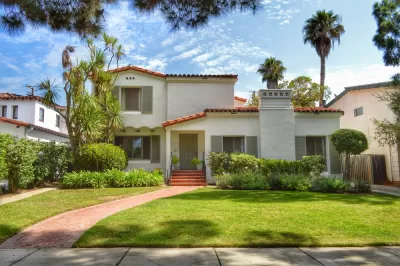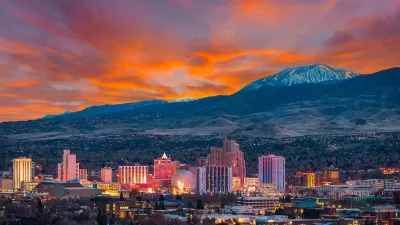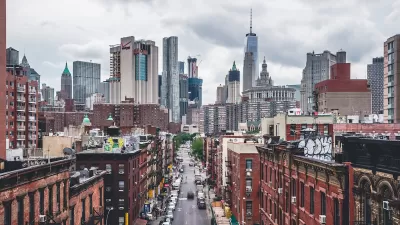As the pandemic shifts housing priorities and costs continue to soar, experts assess the potential for a crash similar to 2008's Great Recession.

With home prices and rents rising across the country, Jerusalem Demsas, writing for Vox, attempts to answer the question, "are we in a housing bubble?"
"[T]here’s no agreed-upon economic definition for an asset bubble," writes Demsas. "And in everyday conversation, it appears to mean 'prices have gone up a lot and I think they’re going to come crashing down again.'" Regardless of the label, Demsas argues that home prices depend "on public policy choices that are in our control."
According to research by Harvard economist Robin Greenwood and his fellow researchers, "just because prices rise really fast doesn’t mean it’s a bubble in danger of popping. The definition needs to be narrower than that." A "frenzied ethos" is also a key component. "In general, what people are looking for to determine if there might be a bubble in housing is that the fast price appreciation is detached in at least some ways from the fundamental reasons why prices increase or decrease normally (like supply or demand)."
Regardless of the bubble status of today's housing market, homeowners and buyers, overall, face less risk than before the 2008 crash. "This isn’t a situation where a ton of people have mortgages that they won’t be able to pay off — the marginal homebuyer is wealthier and more secure than in the lead-up to the Great Recession." But "[p]rices are rising, homeownership is increasingly out of the reach of many Americans, and the alternative (renting) is also increasingly expensive, especially in the most job-rich parts of the country. This is an unhealthy, unstable, and unacceptable state of affairs." Demsas blames restrictive zoning laws for "turning an asset that could be widely available into a scarce one" and suggests that local governments should encourage increased density and more housing production to help supply meet rising demand.
FULL STORY: Is there a housing bubble?

Alabama: Trump Terminates Settlements for Black Communities Harmed By Raw Sewage
Trump deemed the landmark civil rights agreement “illegal DEI and environmental justice policy.”

Study: Maui’s Plan to Convert Vacation Rentals to Long-Term Housing Could Cause Nearly $1 Billion Economic Loss
The plan would reduce visitor accommodation by 25% resulting in 1,900 jobs lost.

Planetizen Federal Action Tracker
A weekly monitor of how Trump’s orders and actions are impacting planners and planning in America.

Waymo Gets Permission to Map SF’s Market Street
If allowed to operate on the traffic-restricted street, Waymo’s autonomous taxis would have a leg up over ride-hailing competitors — and counter the city’s efforts to grow bike and pedestrian on the thoroughfare.

Parklet Symposium Highlights the Success of Shared Spaces
Parklets got a boost during the Covid-19 pandemic, when the concept was translated to outdoor dining programs that offered restaurants a lifeline during the shutdown.

Federal Homelessness Agency Places Entire Staff on Leave
The U.S. Interagency Council on Homelessness is the only federal agency dedicated to preventing and ending homelessness.
Urban Design for Planners 1: Software Tools
This six-course series explores essential urban design concepts using open source software and equips planners with the tools they need to participate fully in the urban design process.
Planning for Universal Design
Learn the tools for implementing Universal Design in planning regulations.
Caltrans
Smith Gee Studio
Institute for Housing and Urban Development Studies (IHS)
City of Grandview
Harvard GSD Executive Education
Toledo-Lucas County Plan Commissions
Salt Lake City
NYU Wagner Graduate School of Public Service





























